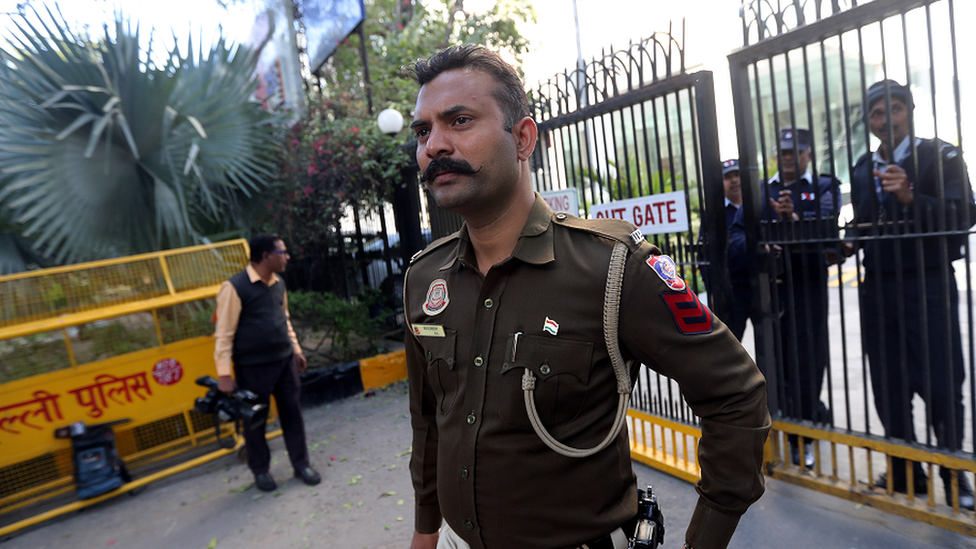BBC India: Search of offices in New Delhi and Mumbai ends after three days
- Published

A police officer standing guard outside the BBC office in New Delhi on Wednesday
The search of BBC offices in India by tax officials has ended after three days.
The authorities entered the offices in New Delhi and Mumbai on Tuesday, with staff facing lengthy questioning or told to stay at the office overnight.
The BBC said: "We will continue to co-operate with the authorities and hope matters are resolved as soon as possible."
It said it "will continue to report without fear or favour".
The investigation comes weeks after the BBC aired a documentary in the UK critical of Indian Prime Minister Narendra Modi.
The BBC statement continued: "We are supporting staff - some of whom have faced lengthy questioning or been required to stay overnight - and their welfare is our priority.
"Our output is back to normal and we remain committed to serving our audiences in India and beyond.
"The BBC is a trusted, independent media organisation and we stand by our colleagues and journalists who will continue to report without fear or favour."
The BBC's documentary, India: The Modi Question, was broadcast on television only in the UK, but India's government has attempted to block people sharing it, describing it as "hostile propaganda and anti-India garbage" with a "colonial mindset".
The documentary focused on the prime minister's role in anti-Muslim violence in Gujarat in 2002, when he was chief minister of the state.
The BBC said last month the Indian government was offered a right to reply to the documentary, but it declined.
The Editors Guild of India - a non-profit group which promotes press freedom - said earlier this week it was "deeply concerned" about the searches.
It said they were a "continuation of a trend of using government agencies to intimidate and harass press organisations that are critical of government policies or the ruling establishment", it said.
Amnesty International India's Board accused authorities of "trying to harass and intimidate the BBC over its critical coverage of the ruling Bharatiya Janata Party".
But the party said the searches were lawful and the government had nothing to do with their timing.
Earlier this week, Gaurav Bhatia, a spokesman from Mr Modi's ruling Bharatiya Janata Party (BJP), described the BBC as the "most corrupt organisation in the world".
"India is a country which gives an opportunity to every organisation," he said, "as long as you don't spew venom."